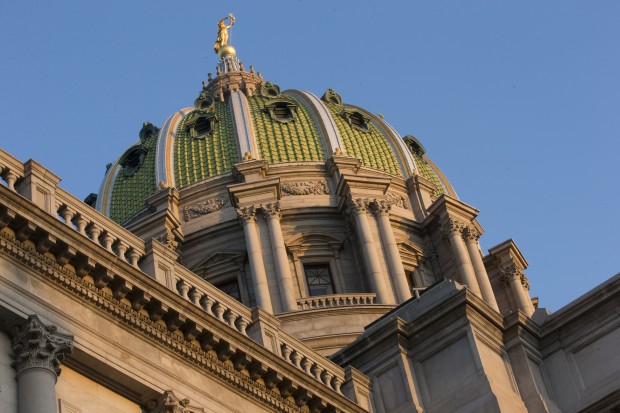Lawmakers, state officials clash over regulatory oversight
-
Katie Meyer/WITF

Matt Rourke / AP Photo
In a House committee meeting, the subject of how Pennsylvania manages its regulations was front and center.
GOP lawmakers and the Wolf administration have renewed their sparring over state government regulation, butting heads on environmental rules.
The discussion in a House State Government committee meeting was ostensibly focused on Department of Environmental Protection regulations. However, it also delved into some more deep-seated disagreements over how the commonwealth is run.
Officials from the DEP testified before the panel, primarily about general permit revisions to methane regulations, which some lawmakers contend need to have more legislative oversight.
Secretary Patrick McDonnell maintained that the state is doing all it is required to under Independent Regulatory Review Commission guidelines.
But as former DEP Secretary Mike Krancer pointed out, the issue goes beyond methane regulations.
“It’s really about checks and balances, and it’s about making good or bad public policy decisions,” he said.
It comes down to a question: does Pennsylvania have too many regulations?
GOP lawmakers and pro-business advocates–many of whom were called to testify–tend to say yes.
A research fellow with the pro-free market Mercatus Center cited a study ranking the commonwealth in the top 15 states with the most regulations.
“The commonwealth of Pennsylvania has tens of thousands of regulatory restrictions on its books, far higher than some other states like Missouri and Arizona,” said James Broughel.
However, McDonnell pointed to a contrasting study from Rutgers University that shows the commonwealth’s regulatory review processes to be among the most stringent in the nation.
















